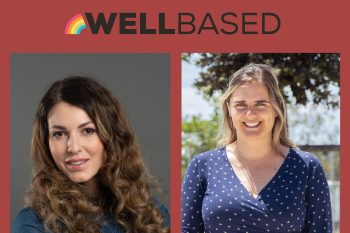City interventions for better health and against energy poverty
Interview with Victoria Pellicer and Agnes Losonci (Valencia and Obuda-Bekasmegyer)


This is our second and final episode on how energy poverty affects people not only financially but also through poor health. In the previous episode we looked into coping strategies and needs of people in energy poverty. In this current episode we want to discuss the different pathways we can take for making people’s lives at home healthier. This show is about how local governments can provide answers and concrete help, especially to those that are already in fragile or complicated situations. How can they be supportive in urgency situations while creating long-term conditions that bring wellbeing?
Our host Miriam Eisermann speaks about urban strategies with two very committed ladies: Victoria Pellicer from Valencia in Spain (Valencia Clima i Energia) and Agnes Losonci from the district administration of Obuda-Bekasmegyer, a district in Hungary’s capital Budapest. Valencia and Obuda are two pretty different places and still: energy poverty is an issue. Victoria and Agnes tell me what type of advice and measures works best and how their cities’ strategies in the field have evolved over time. In the WELLBASED project, Valencia and Obuda were pare of a group of 6 pilots that made the connection between public health and access to affordable energy.
The Óbuda pilot, located in the Békásmegyer district of Budapest, implemented a range of interventions aimed at improving energy efficiency and addressing energy poverty. The pilot conducted energy audits and provided arrears management support to households facing challenges with energy bills. Additionally, the intervention included energy efficiency training and household management education, with the goal of equipping participants with the skills and knowledge needed to reduce energy consumption and manage their household finances more effectively. A notable feature of the Óbuda pilot was its focus on community-building programs, which aimed to foster a sense of collective action and collaboration among residents. The pilot organized attitude-forming programs, community events, and stakeholder engagement activities that sought to raise awareness about energy poverty and promote energy-saving behaviours at the household level. You may also be interested in reading our recent article on Budapest’s current housing challenges.
The Valencia pilot implemented a comprehensive program to address energy poverty, focusing on both practical interventions and community-based initiatives. Key actions included socio-energy audits, energy debt support, and bill optimization services. These interventions were aimed at reducing energy consumption and alleviating financial burdens on vulnerable households. A significant part of the pilot was the Citizen School of Right to Energy, which organized regular community meetings and training sessions for professionals to improve the detection and management of energy poverty. Valencia is also helping vulnerable households through energy sharing in the POWER UP project.
📅 And if you’re keen to discuss more about this topic of fairer energy services and healthy homes, you may be interested in joining us in Valencia on 20 February 2025 for the WELLBASED Final Event. Not only you will be able to meet the 18 partners from 10 countries, incl. municipalities, but you’ll also hear more about our real-life interventions and how we can better bridge research, practice and policy to bring lasting change.
ABOUT WELLBASED
WELLBASED is a research project, funded by the EU’s Horizon 2020 proram. It started in 2021 and that ends in February 2025. Local authorities were very much key actors in the work with energy poor households. During a period of 18 months, the WELLBASED project researched in six European cities how people in energy poverty suffer from ill-health and how a series of interventions – the so-called WELLBASED urban programs – can bring a change and support to people in vulnerable situations. Overall, the project involved over 1300 people in energy poverty in the Netherlands, Spain, the UK, Hungary, Latvia and Turkey. Many of the interventions targeted energy and health either through advice to people or smaller fixes in their homes. Only in Leeds and Edirne, more expensive measures were implemented like the replacement of the heating system or even a complete retrofit of the building fabric.
In parallel, the research team went into the homes and collected all sorts of data: collection included measurements around home comfort (temperature, humidity, CO2 levels), questionnaires on health (including sleep quality, mental wellbeing) and energy habits and direct measurements of health (e.g. blood pressure). Qualitative interviews captured people’s lived experience before and after the interventions.


